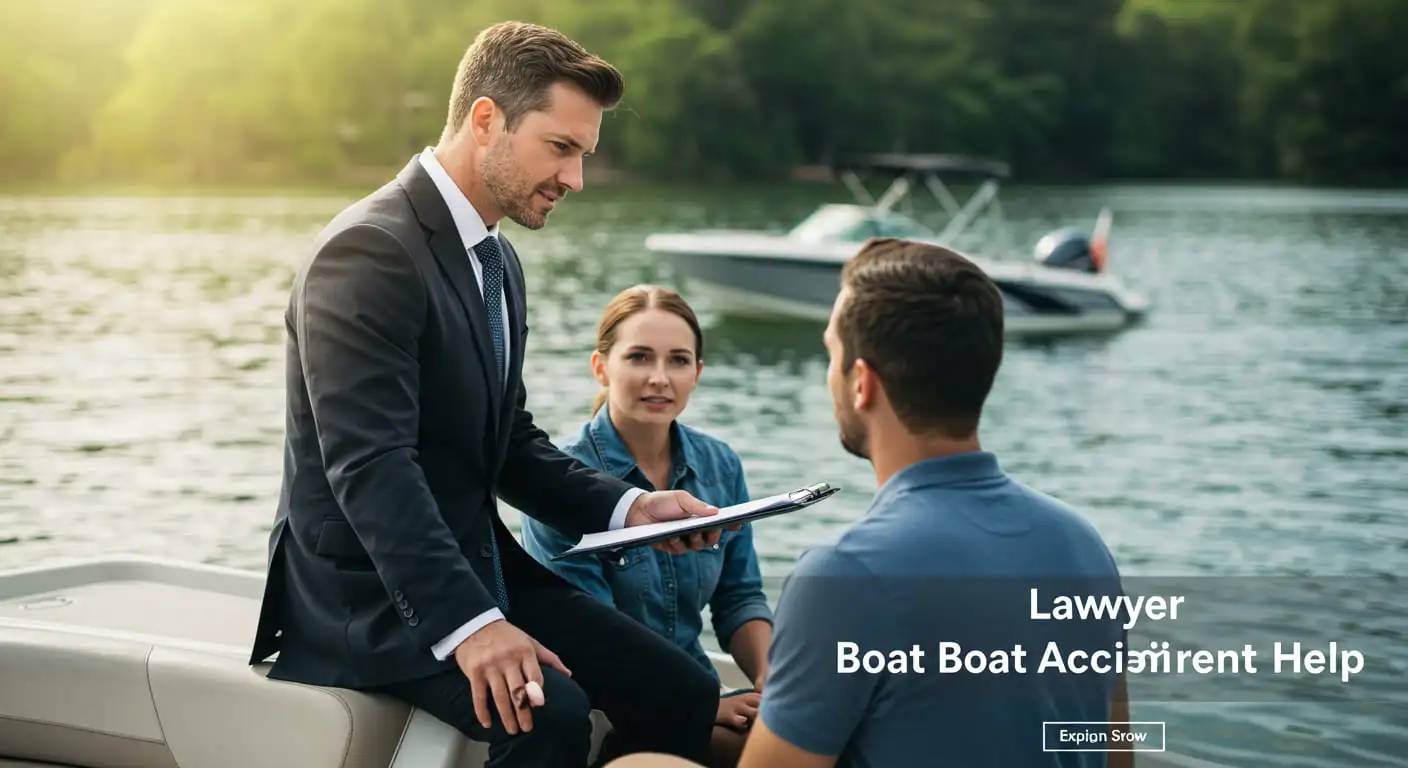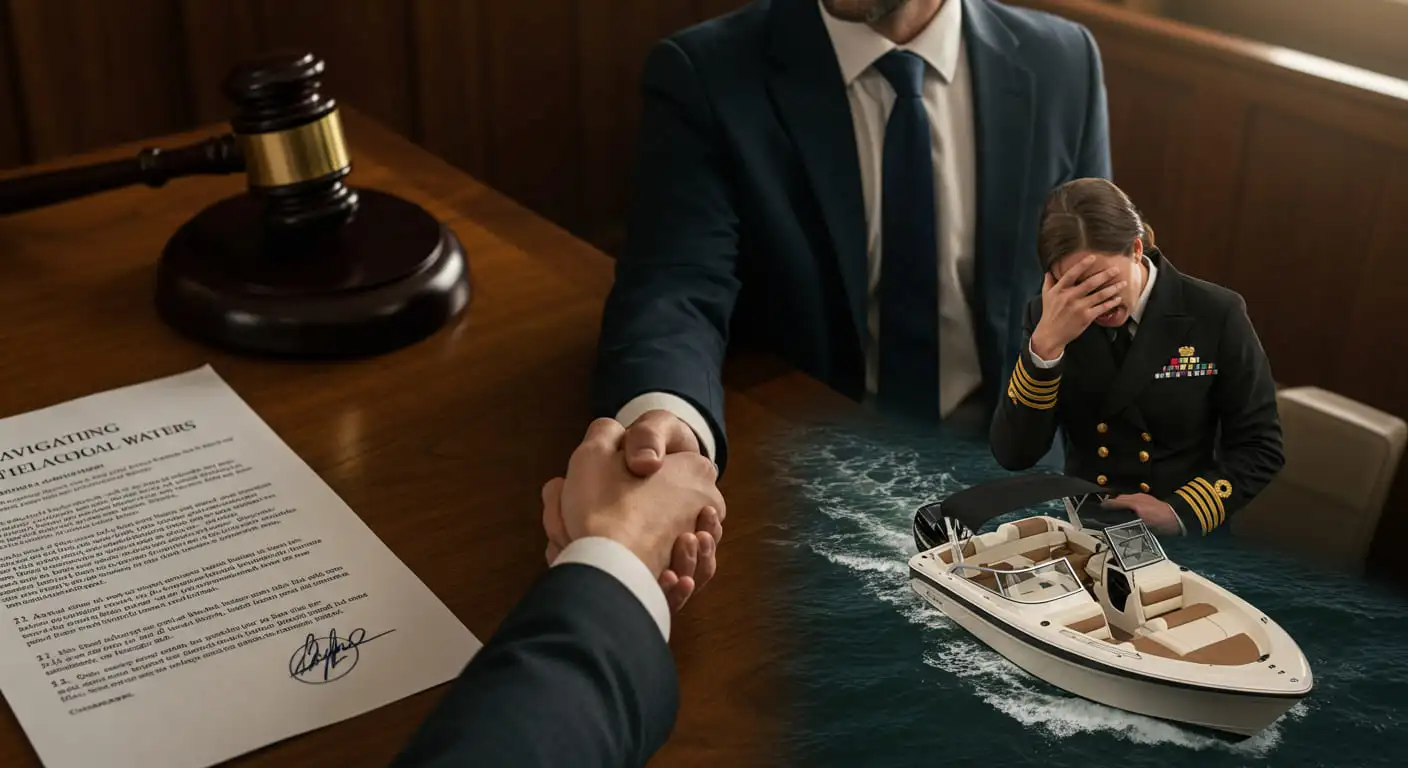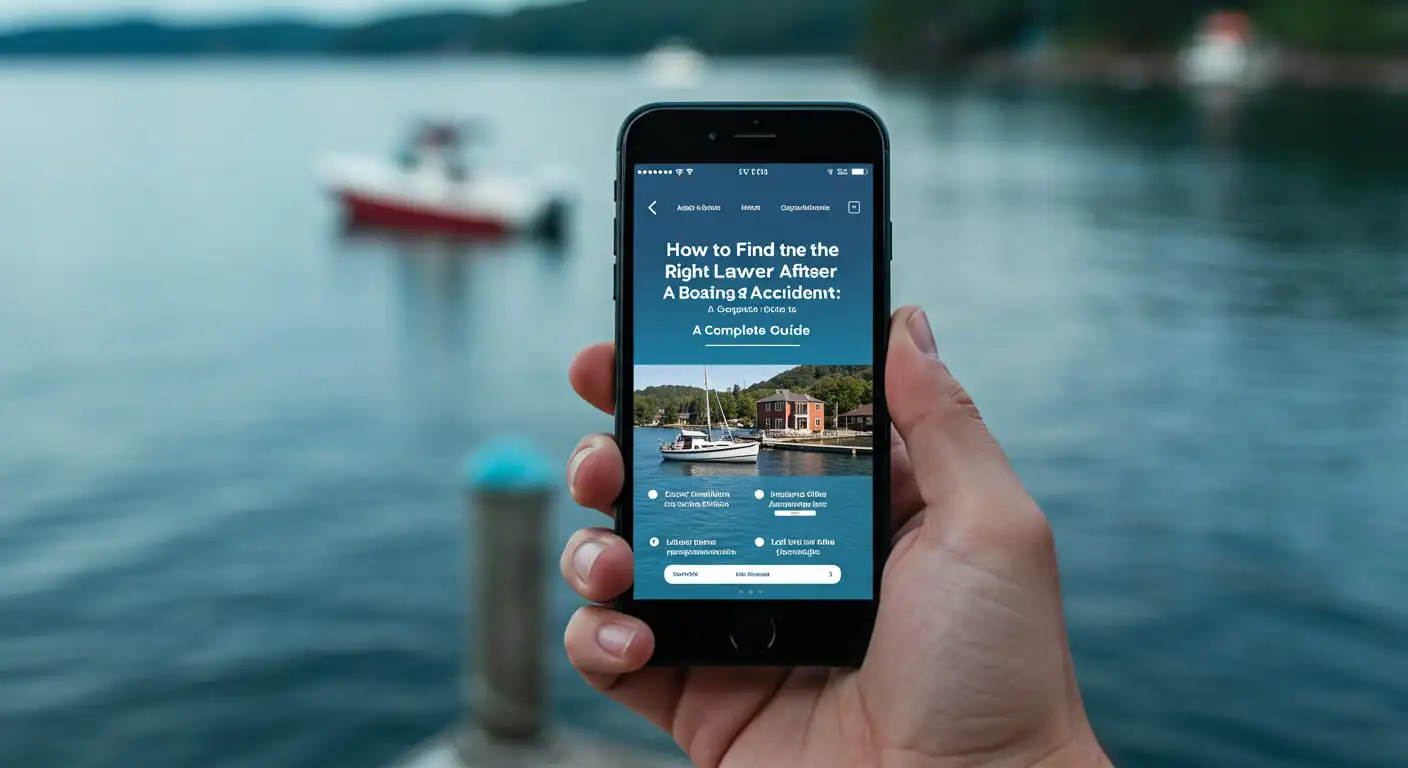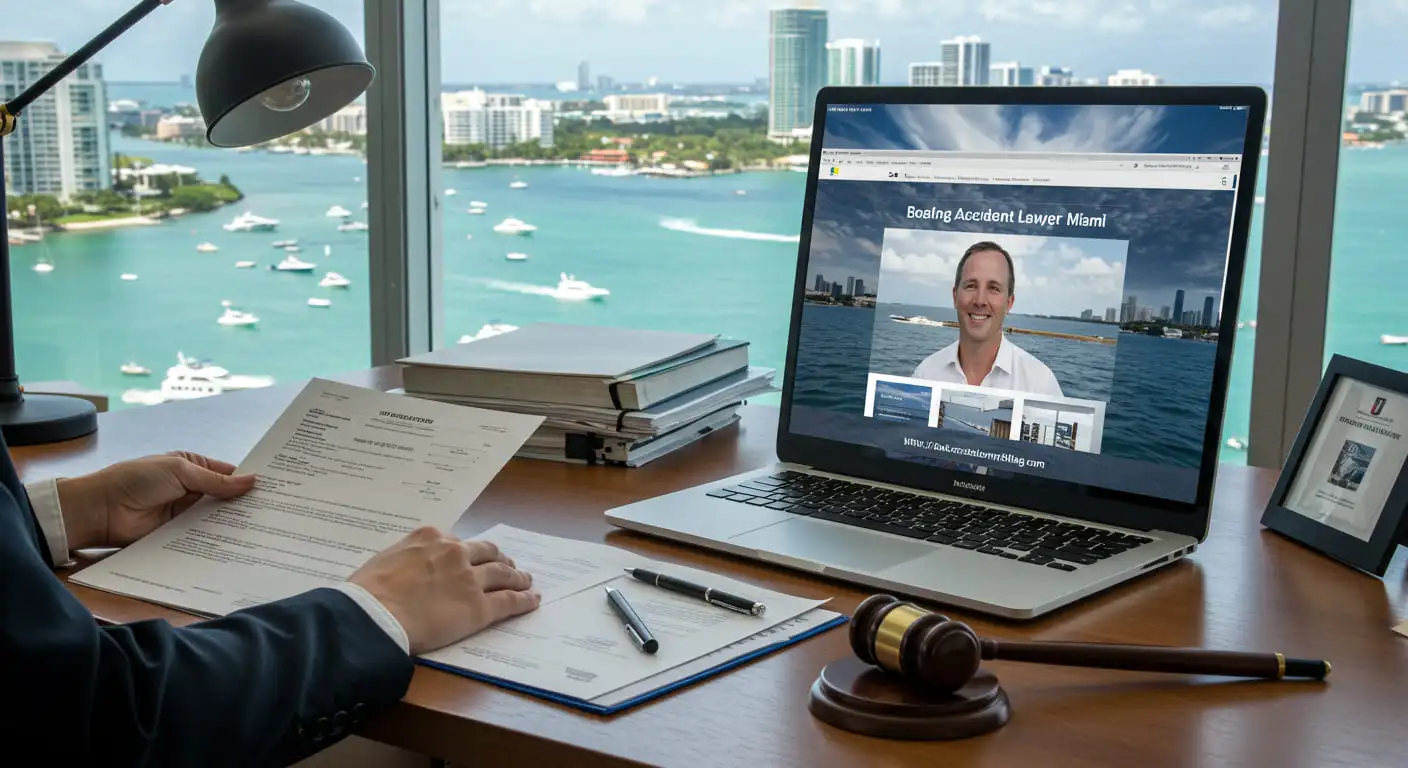Injured in a boating accident lawyer? Learn who’s responsible, what injuries are covered, when to hire a lawyer, and how to protect your rights with strong evidence.
Whether you’re enjoying a relaxing day on the lake or navigating coastal waters, boating accidents can happen unexpectedly—and they can lead to serious injuries, property damage, and long-term consequences. Unfortunately, many victims don’t realize they have legal options or wait too long to take action.
This guide walks you through your rights after a boating accident, who may be liable, what types of injuries are covered, and whether you should hire a lawyer, even for minor crashes. You’ll also learn how to properly gather and protect evidence to strengthen your case from day one.
Who’s Liable in a Boating Accident Lawyer?
Boating accidents often involve more than just a careless mistake—they can be the result of negligence, poor maintenance, mechanical failure, or even alcohol use. Determining liability can be complex and may involve multiple parties. Here’s a breakdown of who could be held responsible:
1. The Boat Operator
The person steering the boat holds a duty of care to passengers, other boaters, and swimmers. If they were distracted, speeding, intoxicated, or unfamiliar with navigational rules, they may be found legally responsible for the crash.
2. The Boat Owner
Even if the owner wasn’t operating the vessel at the time, they could still be liable for:
- Failing to maintain safety equipment
- Allowing an unqualified or intoxicated person to drive
- Not performing regular boat inspections
3. Boat Rental or Charter Companies
Commercial operators must ensure their boats are safe and fully equipped. If a rented or chartered boat malfunctions due to poor maintenance or safety oversights, the company may be at fault.
4. Manufacturers or Parts Suppliers
If a boating accident was caused by a defective engine, steering system, or structural component, the manufacturer may be liable under product liability laws.
5. Other Boaters or Passengers
In multi-boat collisions, another operator might be responsible. Even a reckless passenger who distracted the driver or caused an imbalance might share fault.
Note: In some cases, government entities could also be involved—for example, if missing buoys, broken lights, or unmarked hazards contributed to the accident.
Injuries Covered Under Boating Accident Claims
A day on the water can quickly turn into a medical emergency. The injuries sustained in boating accidents can range from mild to catastrophic. Here are the most common types:
1. Head and Brain Injuries
Hitting your head during a crash or falling overboard can cause concussions or traumatic brain injuries (TBIs), which might not show symptoms immediately but can lead to lasting cognitive issues.
2. Fractures and Broken Bones
These often result from high-impact collisions or when passengers are thrown during a sudden stop. Broken limbs, ribs, and facial fractures are common and may require surgery and rehabilitation.
3. Spinal Cord Injuries
Injuries to the back or neck can cause chronic pain or paralysis. These cases are often life-changing and carry significant long-term medical expenses.
4. Lacerations and Amputations
Propeller injuries are particularly devastating. Deep cuts, severed limbs, and tissue damage may require emergency surgery and permanent prosthetics.
5. Drowning or Near-Drowning
Even if not fatal, near-drowning can result in lung damage, brain injuries, and long-term health effects. These cases often happen when life jackets aren’t used or safety equipment fails.
6. Burns and Electrocution
Faulty fuel systems, electrical wiring, or onboard fires can lead to serious burns or shock-related injuries.

Do You Need a Lawyer for a Minor Boating Accident?
You might think a small bump or minor collision on the water doesn’t justify hiring a lawyer—but here’s why that assumption could cost you.
1. Hidden Injuries May Surface Later
Symptoms from concussions or soft tissue damage may not appear for days. Without legal guidance, you might settle too early and be stuck with future medical bills.
2. Insurance Companies Protect Their Bottom Line
Insurers often try to downplay claims or push quick settlements. An experienced lawyer can ensure you’re not short-changed and help negotiate a fair payout.
In some states, if you’re found partially at fault (even 10–20%), your compensation can be reduced or denied. A lawyer will fight to protect your share and prove the other party’s responsibility.
4. You May Miss Key Deadlines
States have strict deadlines (statutes of limitations) for filing claims. In some cases, the deadline could be as short as one year. A lawyer ensures you don’t lose your right to sue.
Insurance Claims vs. Lawsuits: What’s Better?
After a boating accident, you have two main options to seek compensation: filing an insurance claim or pursuing a lawsuit. Which one is better depends on the situation.
Insurance Claims
This is usually the first step after an accident.
Pros:
- Faster resolution (weeks to months)
- Fewer upfront legal fees
- Less formal process
Cons:
- Payouts may be lower
- Insurance adjusters aim to protect the company, not you
- You may not be able to recover full damages, especially for pain and suffering
Lawsuits
If insurance won’t pay what you deserve—or liability is disputed—a lawsuit may be the better route.
Pros:
- Can result in higher compensation
- Full legal discovery process to gather evidence
- Court can award punitive damages for gross negligence
Cons:
- Time-consuming (months to years)
- More expensive (attorney fees, court costs)
- Less predictable outcome
A Good Rule of Thumb: If injuries are serious, liability is disputed, or the insurance settlement is low, consult a lawyer immediately. They can evaluate your case and advise whether to settle or sue.
How to Gather Evidence After a Boating Crash
The strength of your case depends heavily on the quality of evidence you collect. Here’s what to do right after the accident:
1. Ensure Safety and Call for Help
First, get everyone to safety and call the Coast Guard or local marine patrol. Don’t move injured persons unless absolutely necessary.
2. Photograph Everything
Take pictures or videos of:
- Boat damage (yours and others involved)
- Weather and water conditions
- Equipment (life jackets, radios)
- Injuries and property damage Use your phone to document everything from multiple angles.
3. Get Contact Info
Collect names, phone numbers, and addresses of:
- Other boat operators
- All passengers
- Eyewitnesses on shore or other boats
4. Preserve the Boat
Don’t fix or clean the boat until it’s been inspected. The condition of the vessel can provide important evidence later.
5. File an Official Report
Depending on your state, you may be required to file a boating accident report. This document becomes part of the case and may be reviewed by courts or insurers.
6. Document Medical Treatment
Seek medical attention immediately—even if you feel okay. Keep copies of all hospital records, X-rays, prescriptions, and doctor’s notes. These will help prove your damages.
7. Write Down Your Memory
As soon as you can, write down your version of events:
- What were you doing before the crash?
- Who was operating the boat?
- Did anything malfunction?
- What did you see or hear?
Memory fades quickly. A personal log can be a powerful piece of evidence.
A boating accident can leave you overwhelmed, in pain, and unsure of what steps to take. But you don’t have to handle it by yourself.
Hiring a skilled boating accident lawyer ensures that you:
- Understand your rights
- Get help collecting evidence
- Receive fair compensation
- Avoid costly legal mistakes
Whether you’re dealing with serious injuries or navigating insurance red tape, the right legal guidance can make all the difference.
Need help now? Don’t wait for insurers to take control of your case. Contact a boating accident attorney today for a free consultation and take the first step toward protecting your future.
Leave a reply














